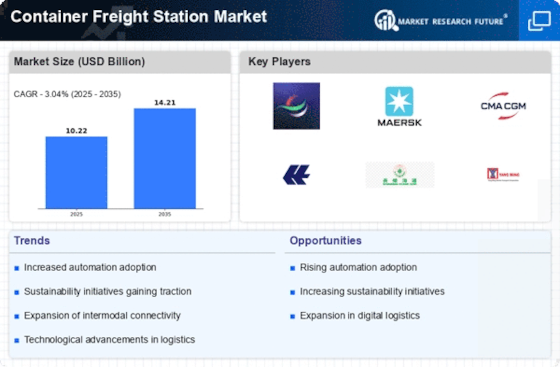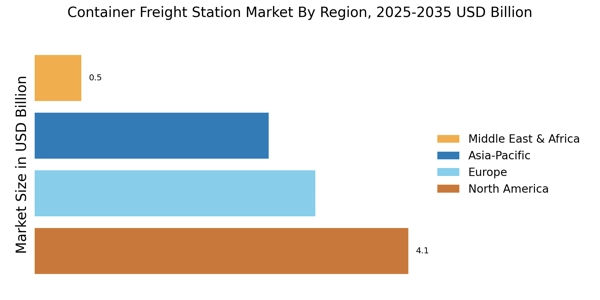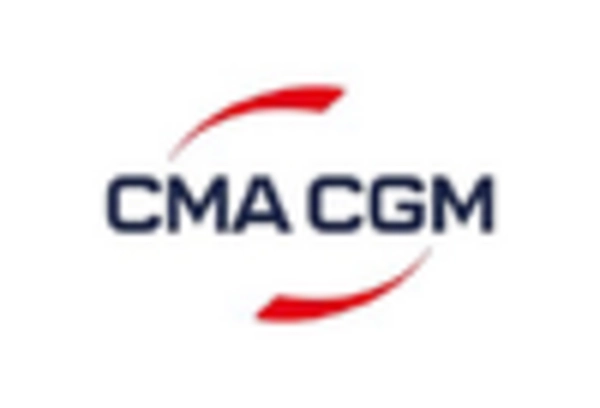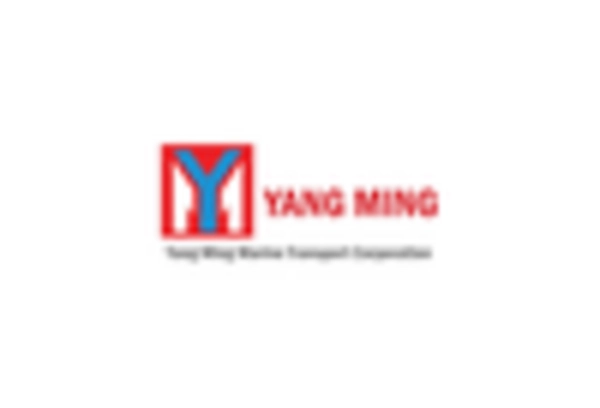E-commerce Expansion
The rapid expansion of e-commerce is significantly influencing the Container Freight Station Market. As online shopping continues to grow, the demand for efficient logistics and freight services has surged. Container freight stations play a crucial role in facilitating the movement of goods from manufacturers to consumers. Recent statistics suggest that e-commerce sales have increased by over 20% annually, leading to a corresponding rise in freight volumes. This trend necessitates that container freight stations adapt to handle increased cargo efficiently, thereby driving investments in infrastructure and technology. The ability to manage higher volumes effectively positions these facilities as vital players in the evolving logistics landscape.
Global Trade Dynamics
The dynamics of The Container Freight Station Industry. Changes in trade agreements, tariffs, and international relations can significantly impact freight volumes and operational strategies. For instance, the recent shifts in trade policies have led to increased demand for container freight services in certain regions, while others may experience declines. The ability of container freight stations to adapt to these changes is crucial for maintaining competitiveness. Market analysis shows that regions with favorable trade agreements can see a 25% increase in freight activity, highlighting the importance of understanding and responding to The Container Freight Station Industry.
Regulatory Compliance
Regulatory compliance is a pivotal driver in the Container Freight Station Market, as governments worldwide implement stringent regulations to ensure safety and environmental protection. Compliance with international standards, such as the International Maritime Organization's regulations, necessitates that container freight stations invest in infrastructure and training. This investment can be substantial, but it is essential for maintaining operational licenses and avoiding penalties. Furthermore, adherence to these regulations can enhance a facility's reputation, attracting more clients who prioritize compliance. The market data indicates that facilities that proactively engage in compliance measures can see a 15% increase in client retention, underscoring the importance of this driver.
Sustainability Initiatives
Sustainability initiatives are becoming increasingly important within the Container Freight Station Market. As environmental concerns rise, many facilities are adopting green practices to reduce their carbon footprint. This includes implementing energy-efficient technologies, optimizing transportation routes, and utilizing eco-friendly materials. The push for sustainability is not merely a trend; it is becoming a requirement for many businesses seeking to align with corporate social responsibility goals. Market data indicates that facilities that adopt sustainable practices can enhance their marketability, potentially increasing their client base by 10 to 15%. This focus on sustainability is likely to shape the future of the Container Freight Station Market.
Technological Advancements
The Container Freight Station Market is experiencing a surge in technological advancements that enhance operational efficiency. Automation and digitalization are becoming increasingly prevalent, with many facilities adopting advanced software solutions for inventory management and tracking. The integration of Internet of Things (IoT) devices allows for real-time monitoring of cargo, which can lead to reduced delays and improved customer satisfaction. According to recent data, the adoption of automated systems in container freight stations has the potential to increase throughput by up to 30%. This trend not only streamlines operations but also reduces labor costs, making it a critical driver for growth in the Container Freight Station Market.

















